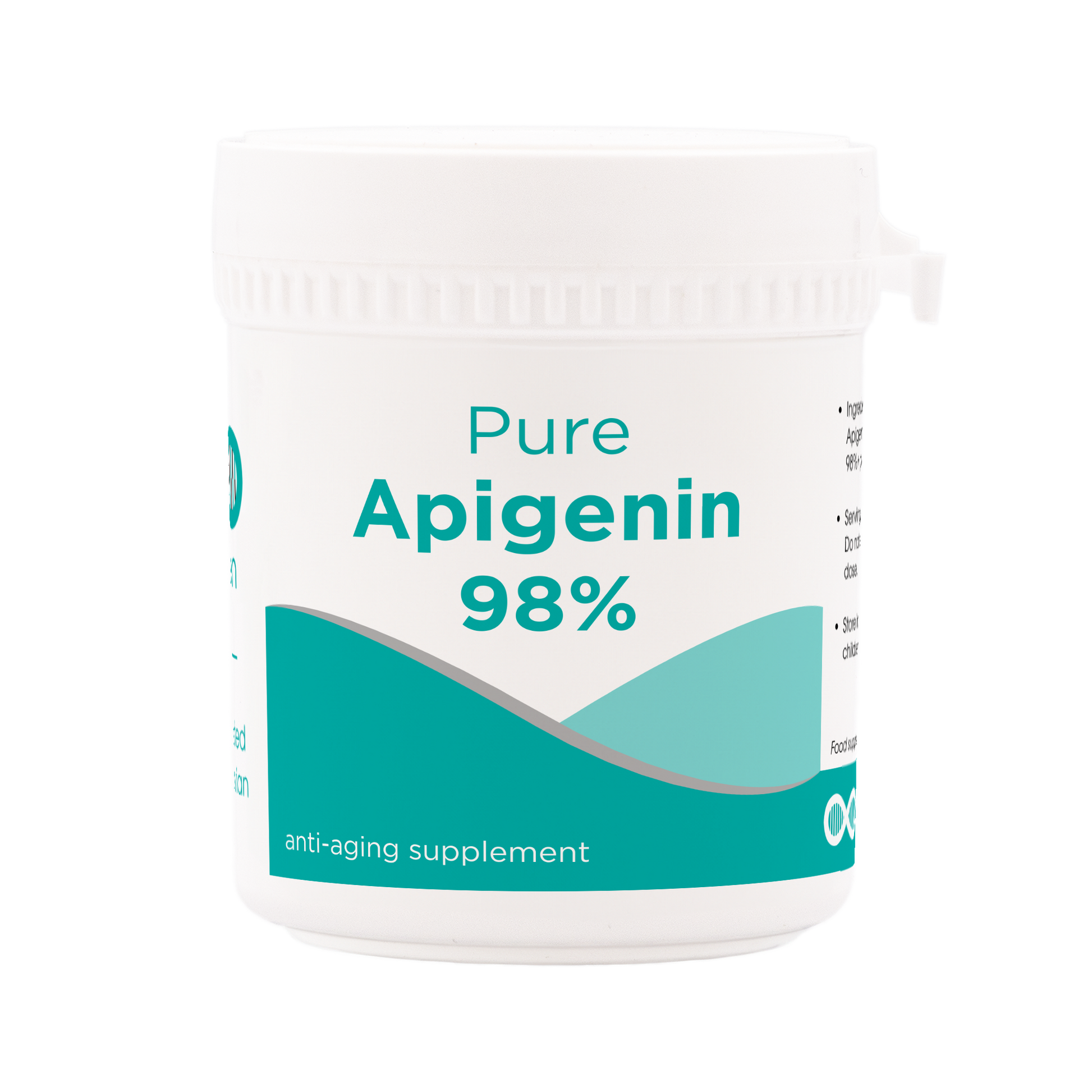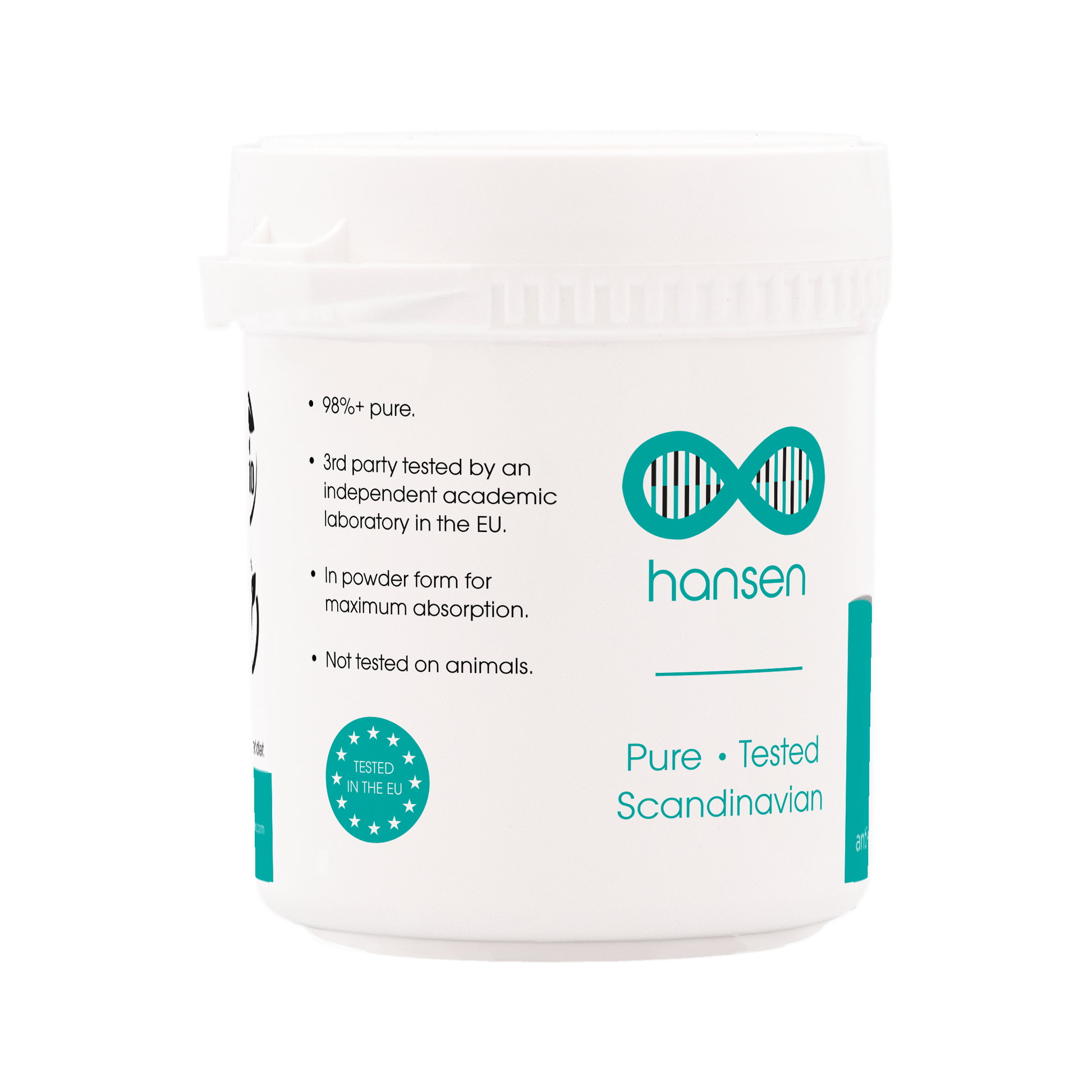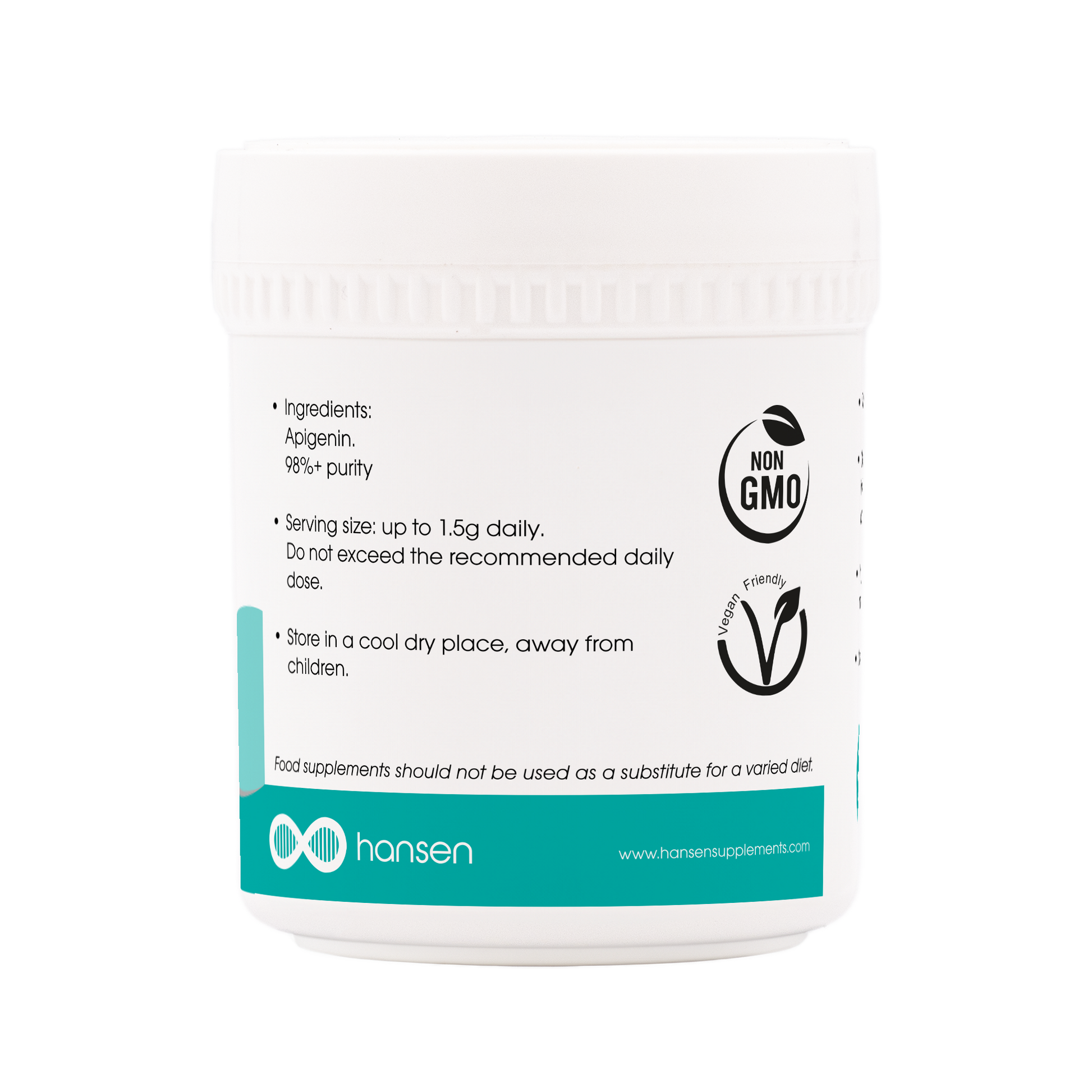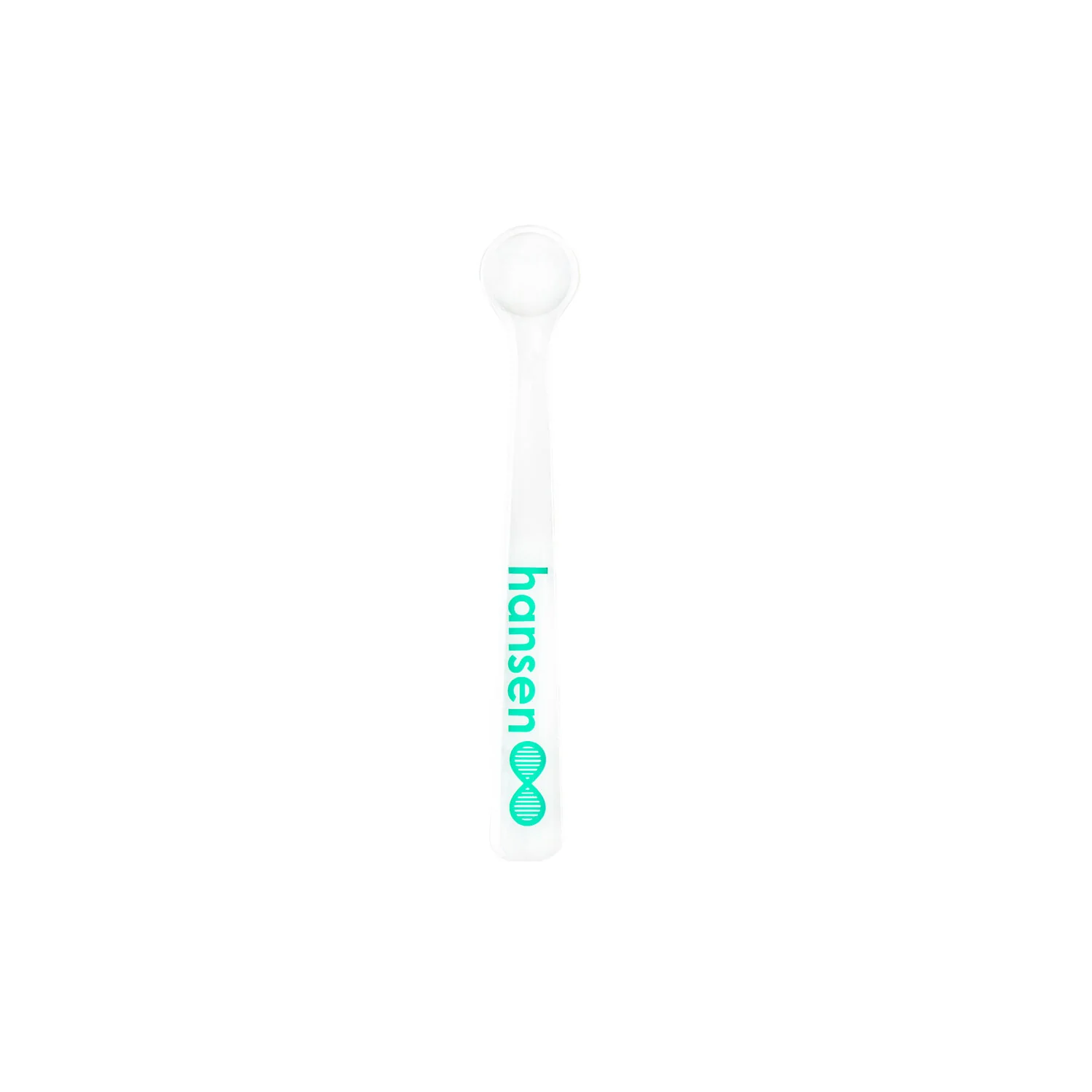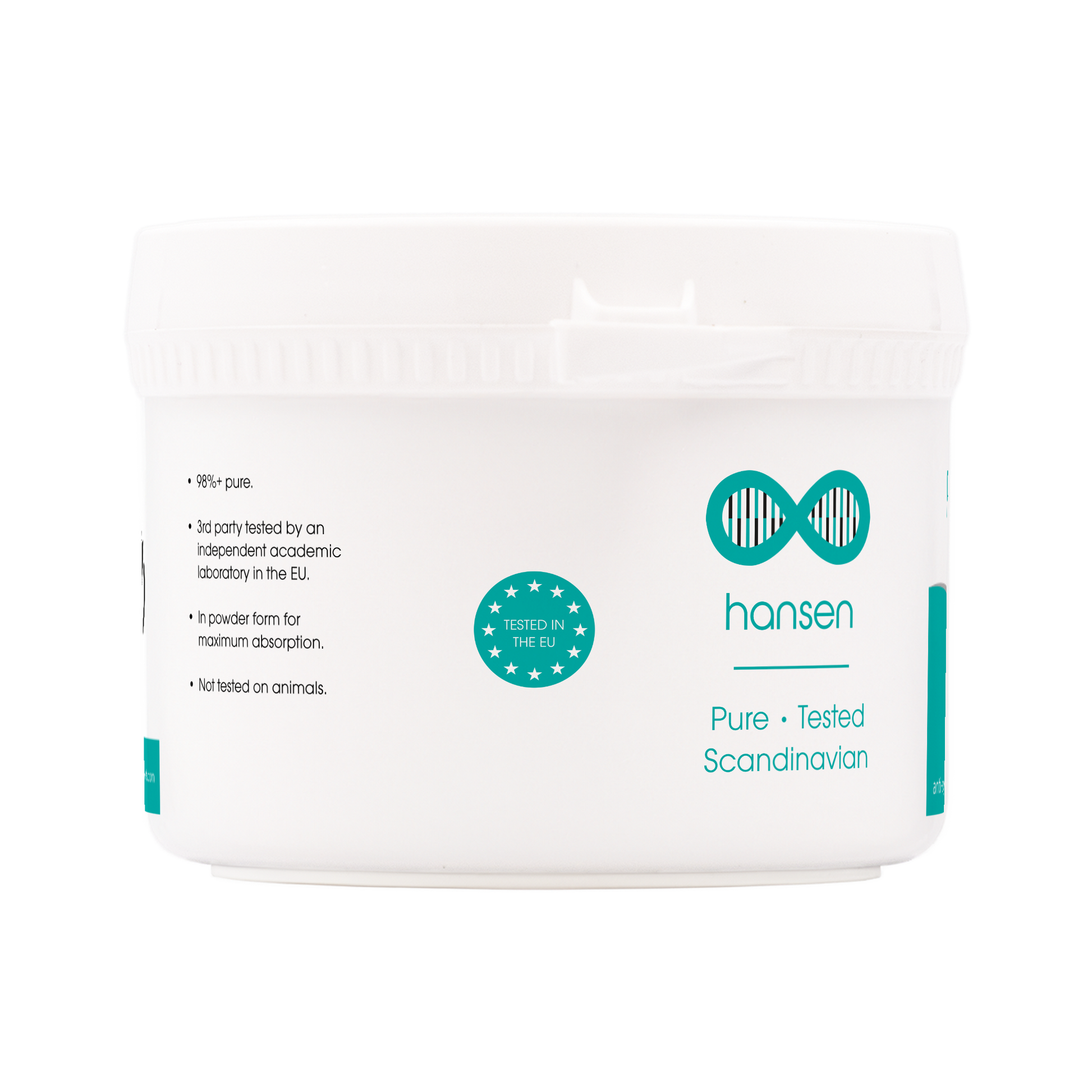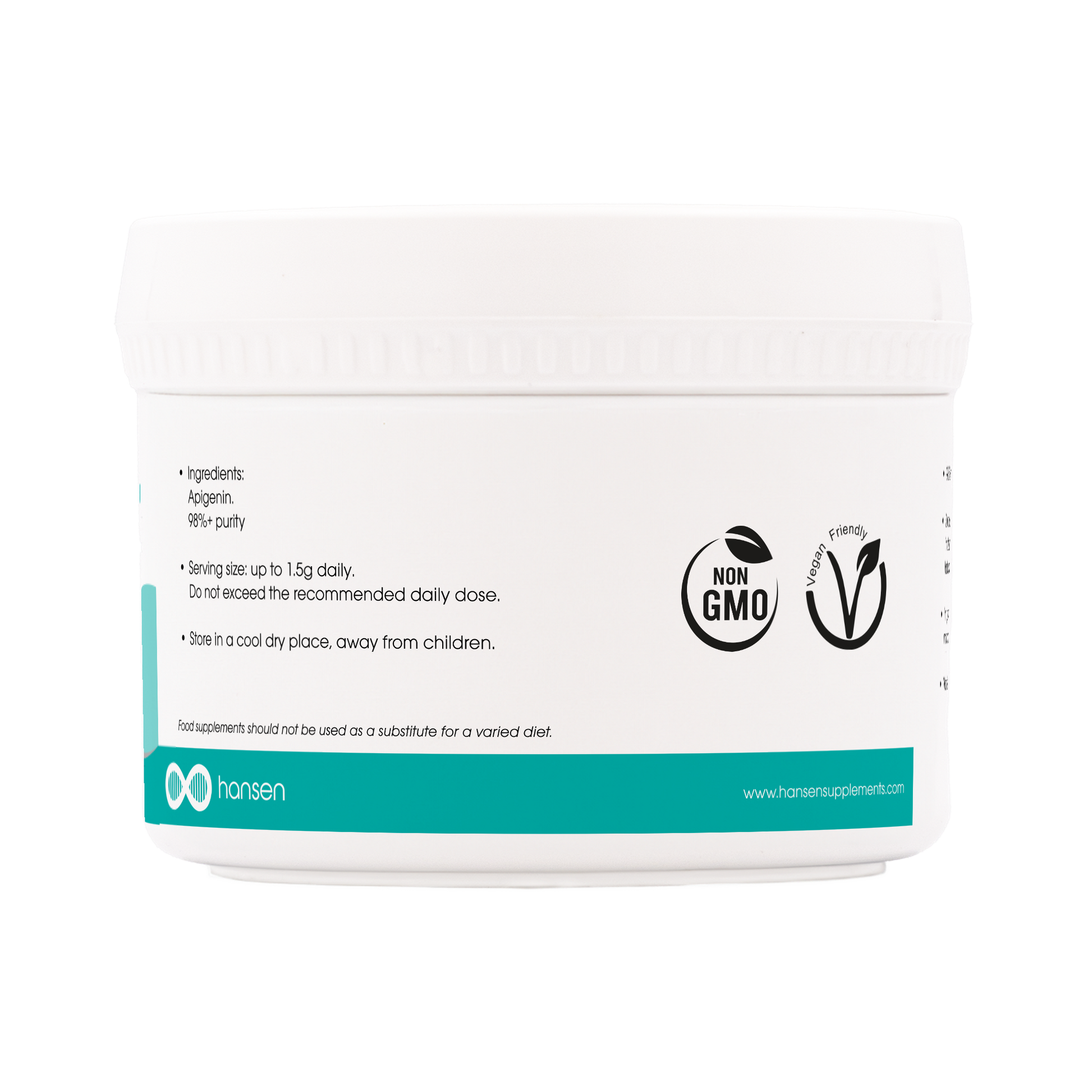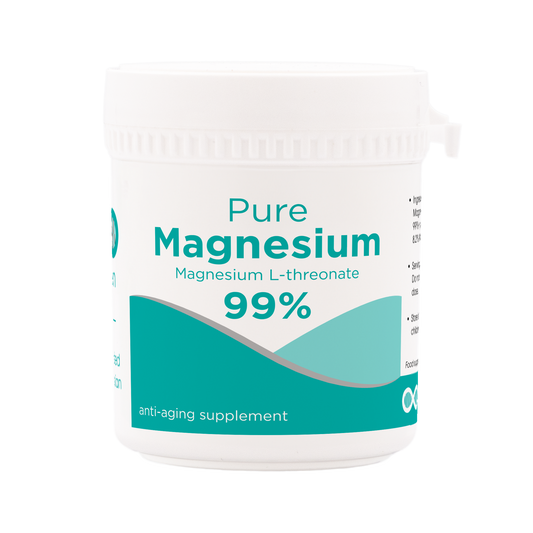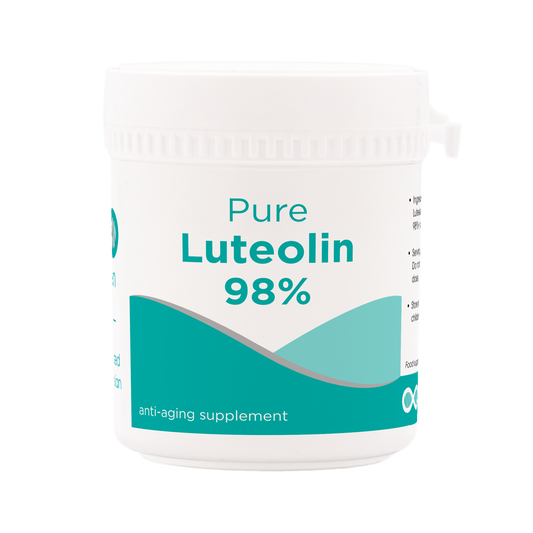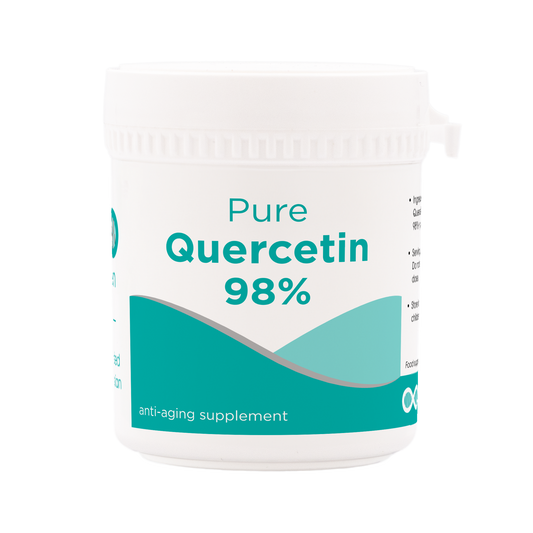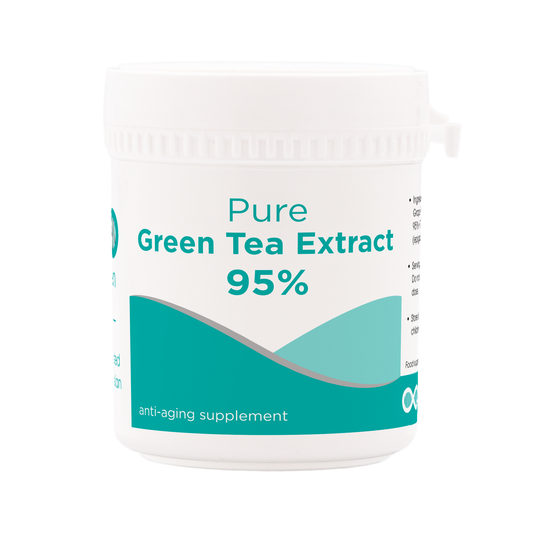Apigenin 98% powder
Apigenin 98% powder
 We ship orders within 2 business days.
We ship orders within 2 business days.
Couldn't load pickup availability
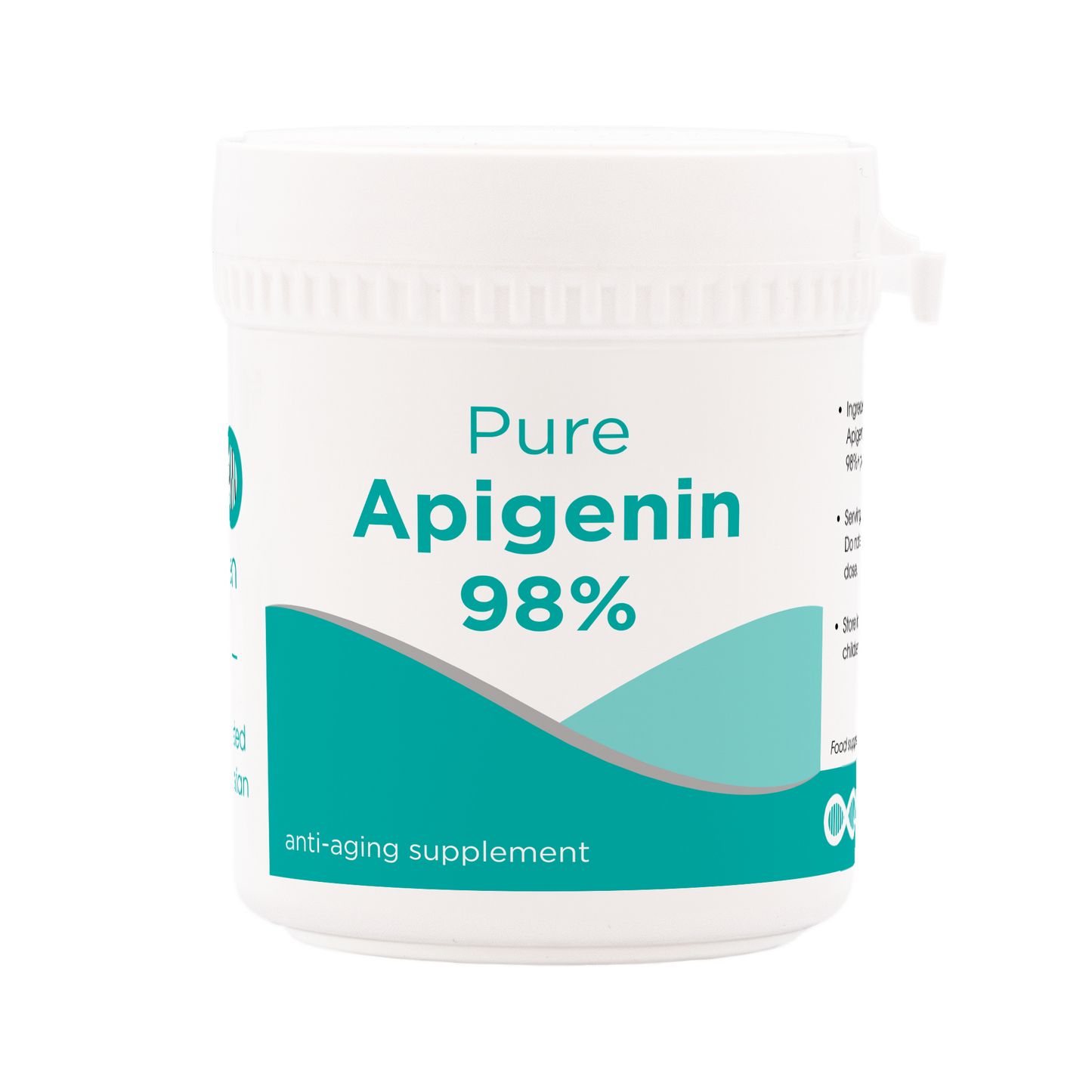
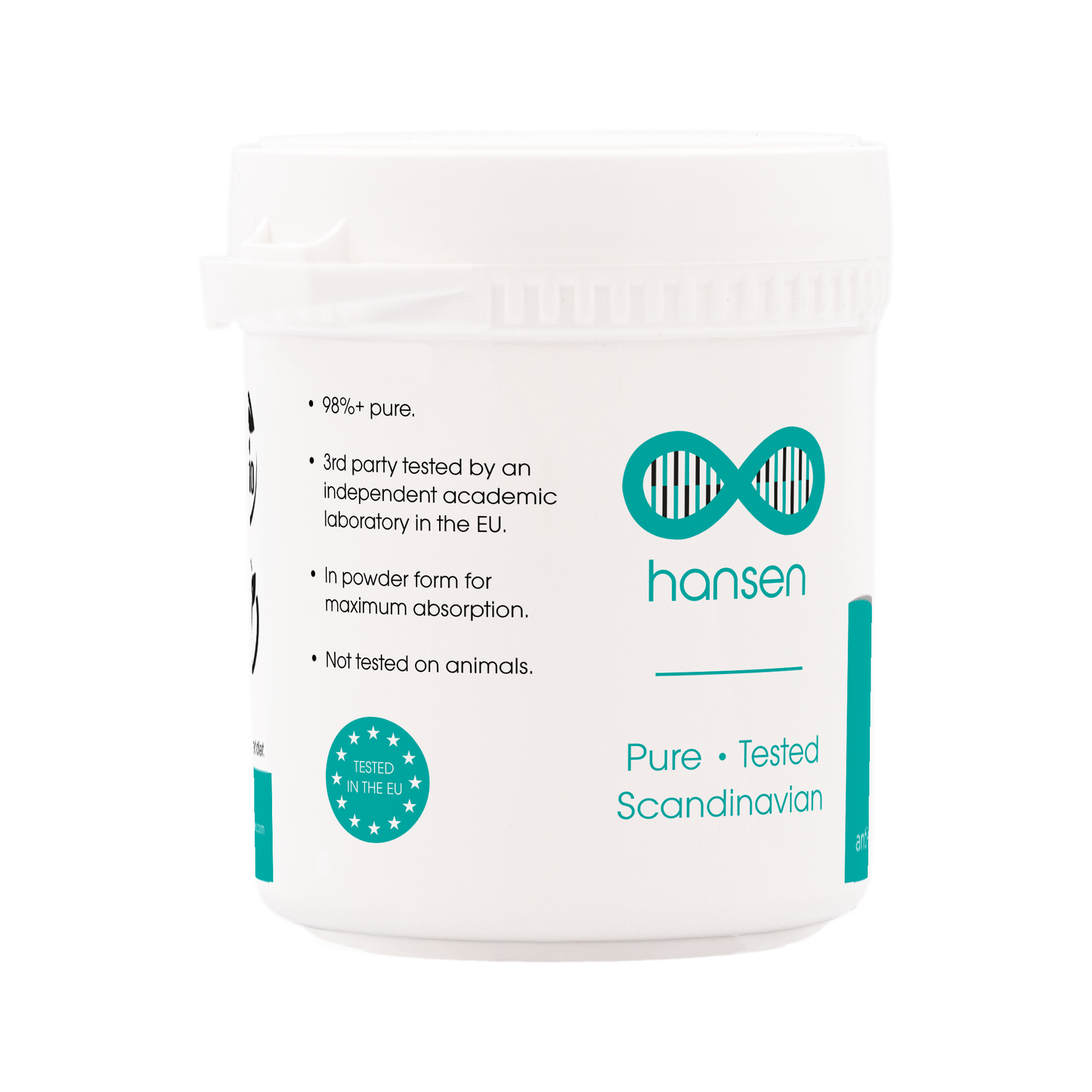
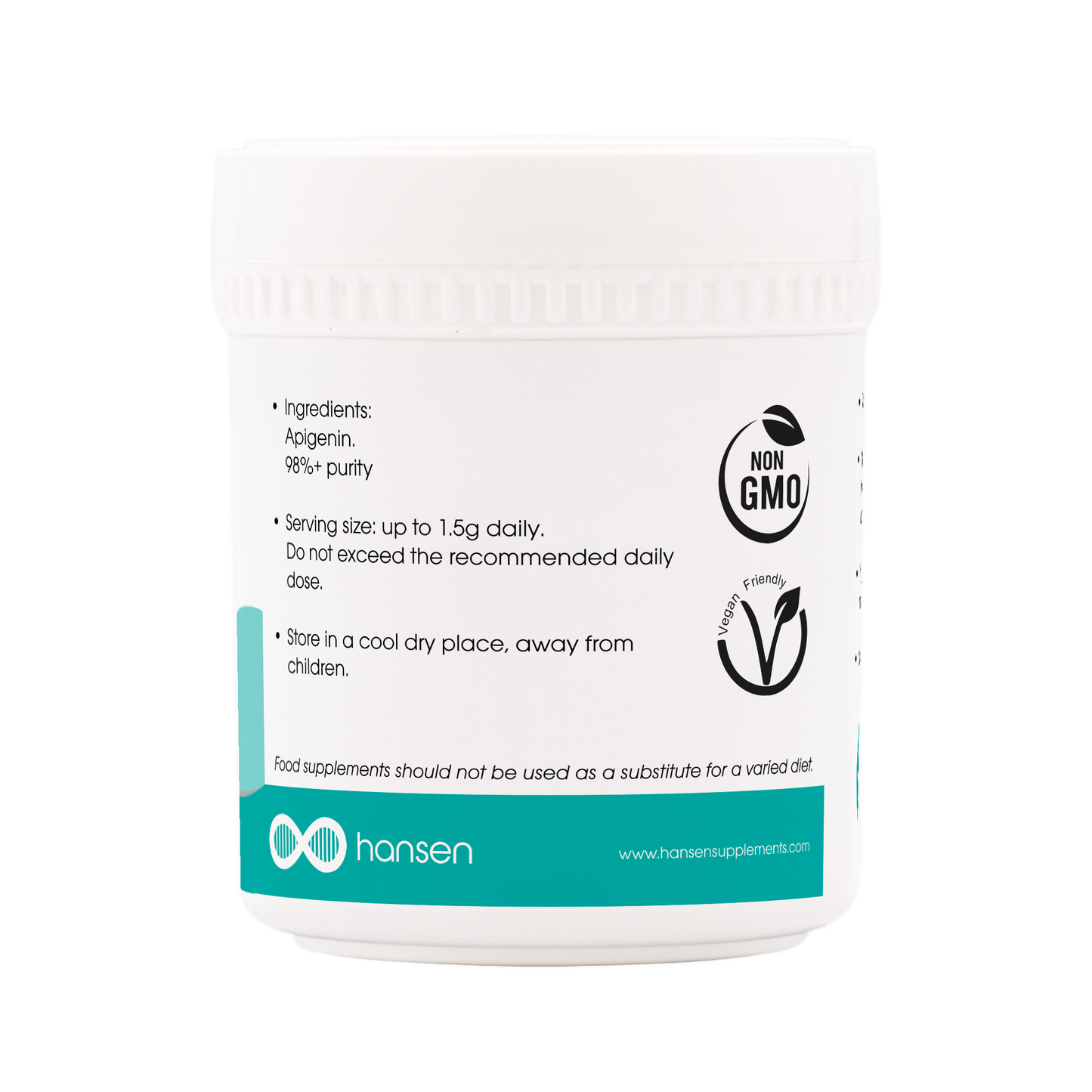
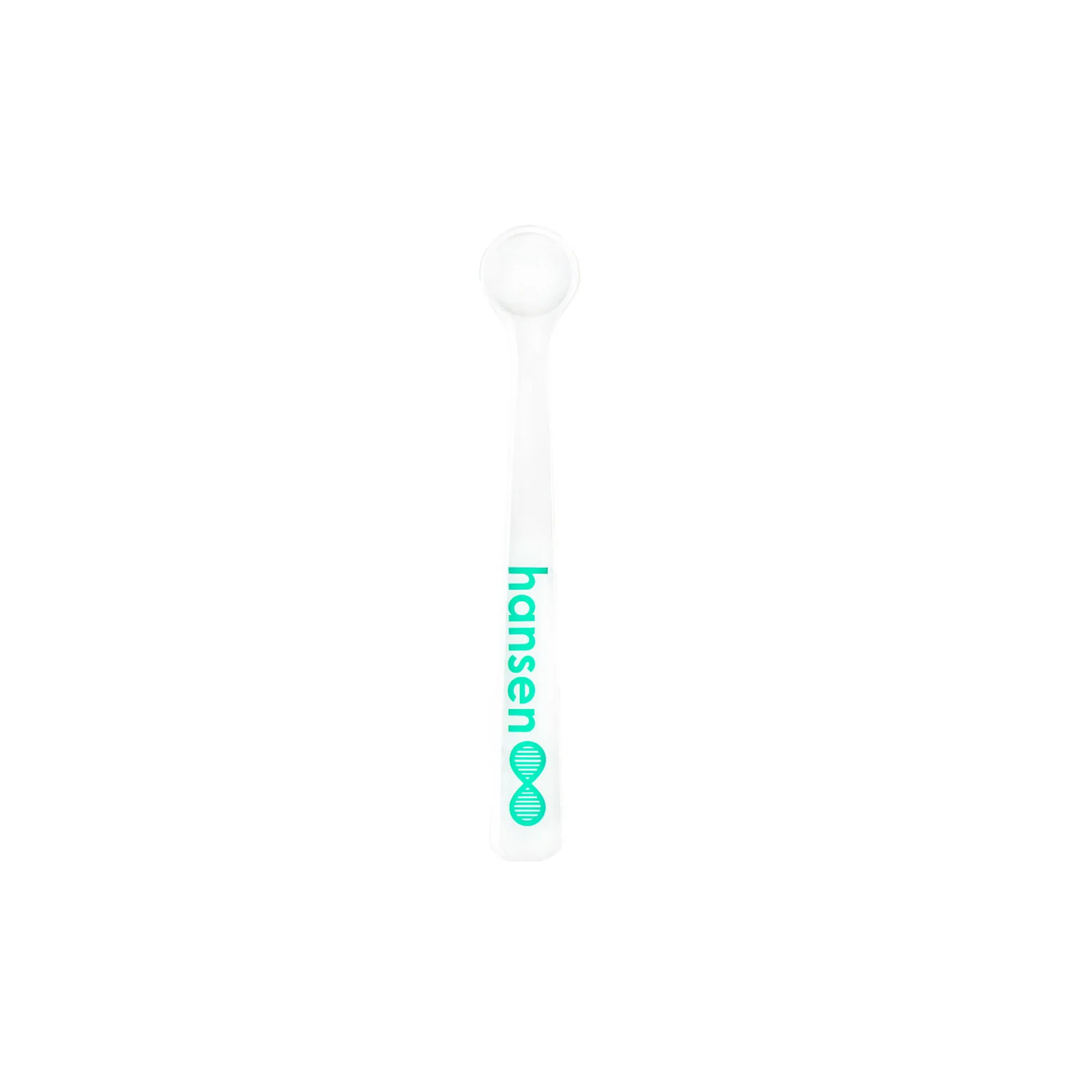
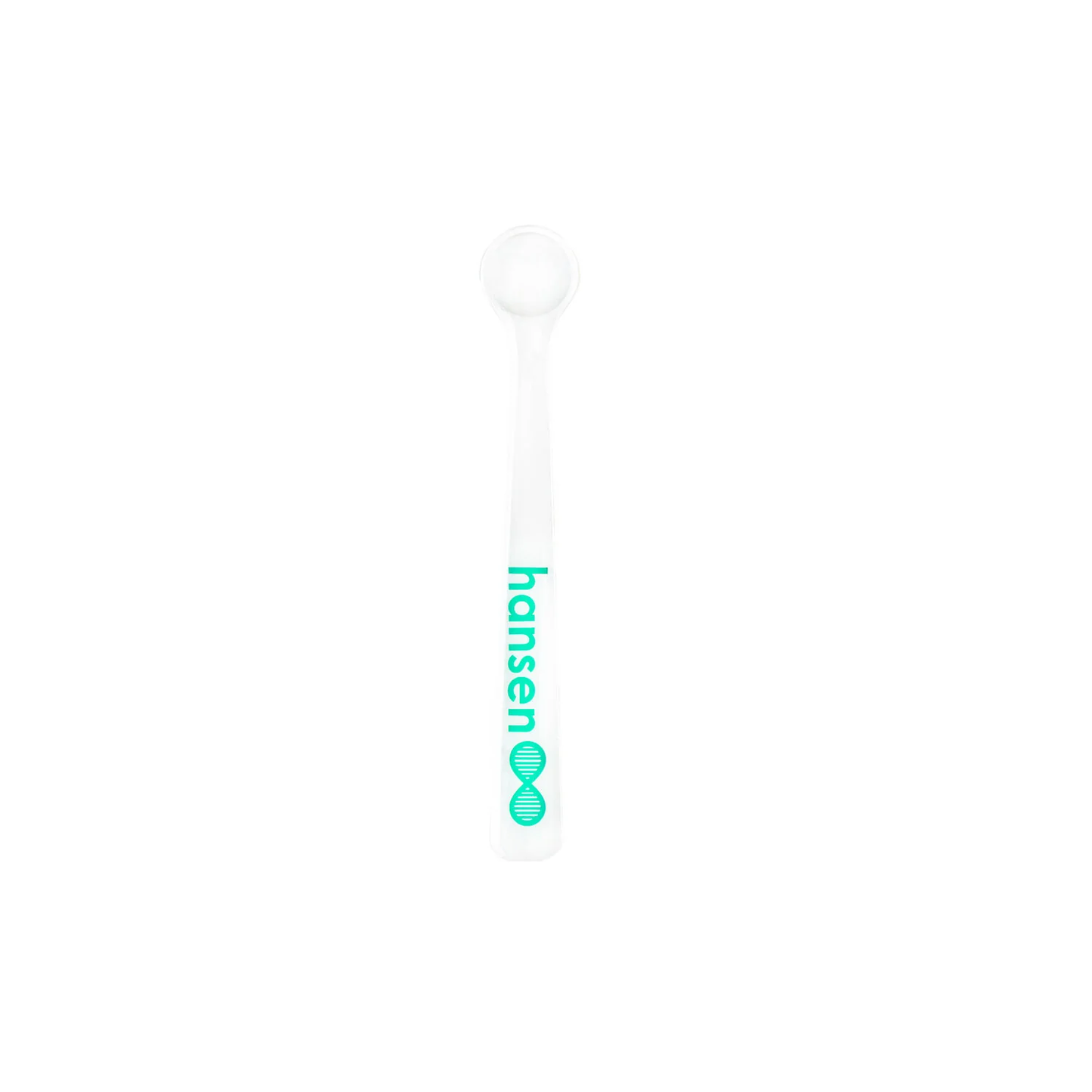
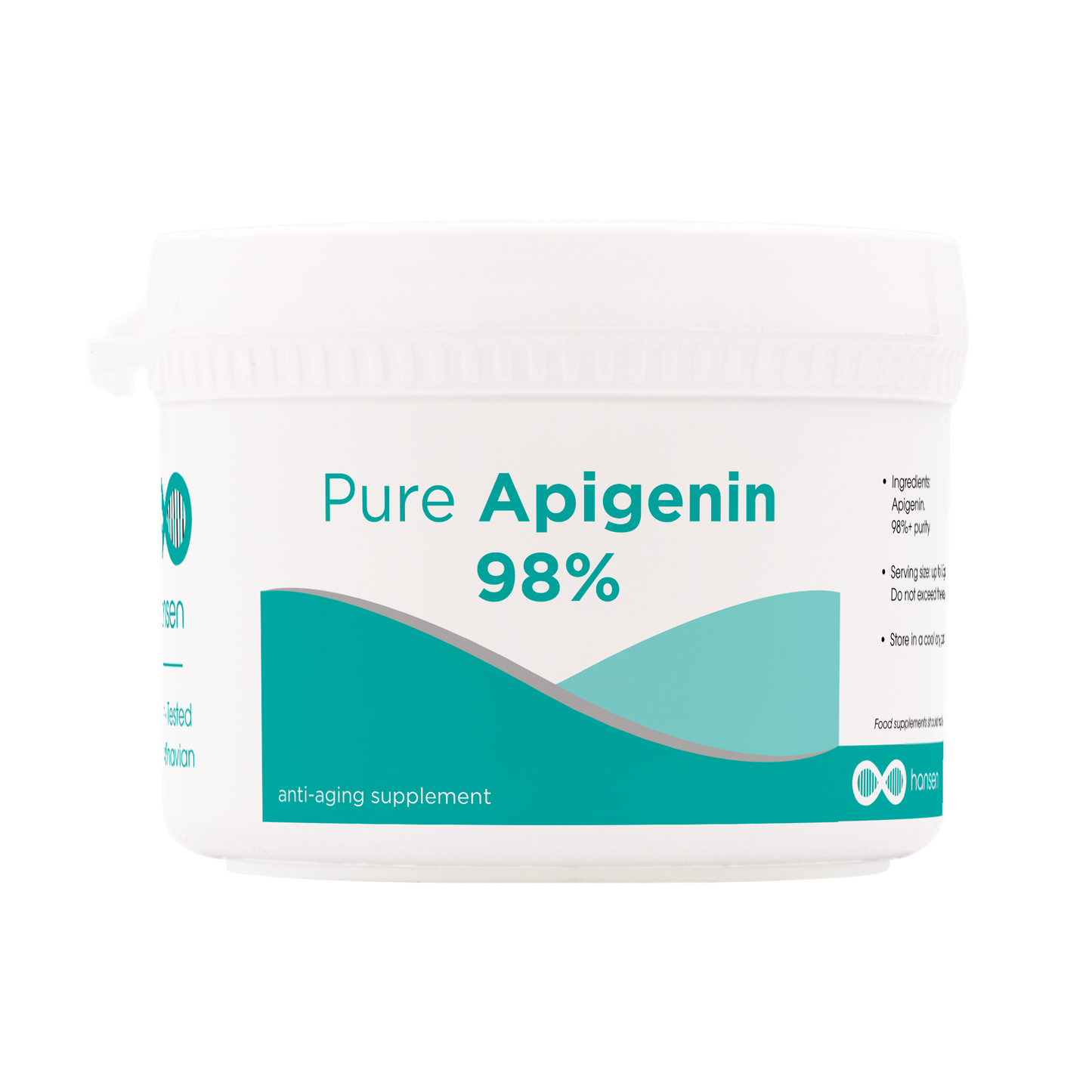
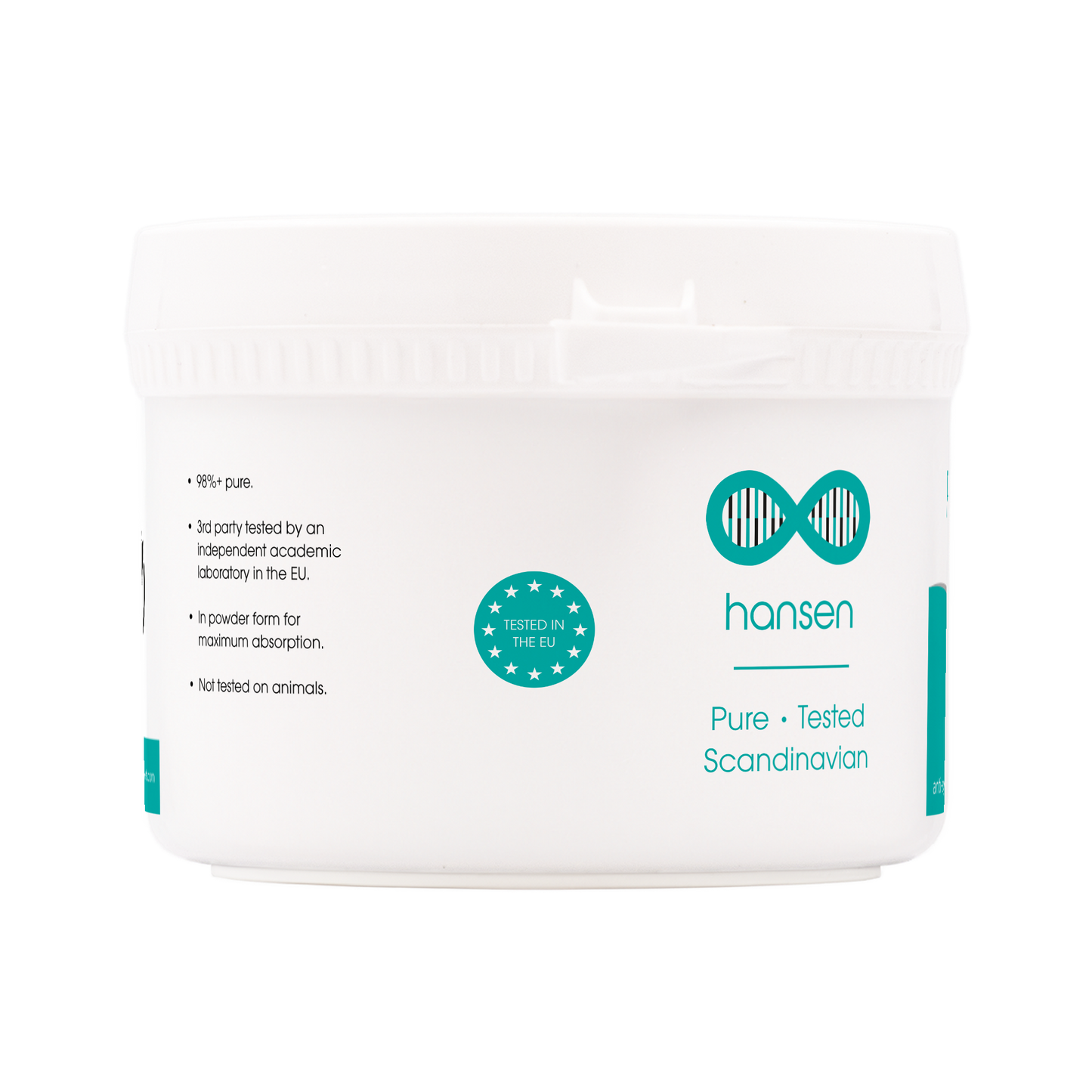
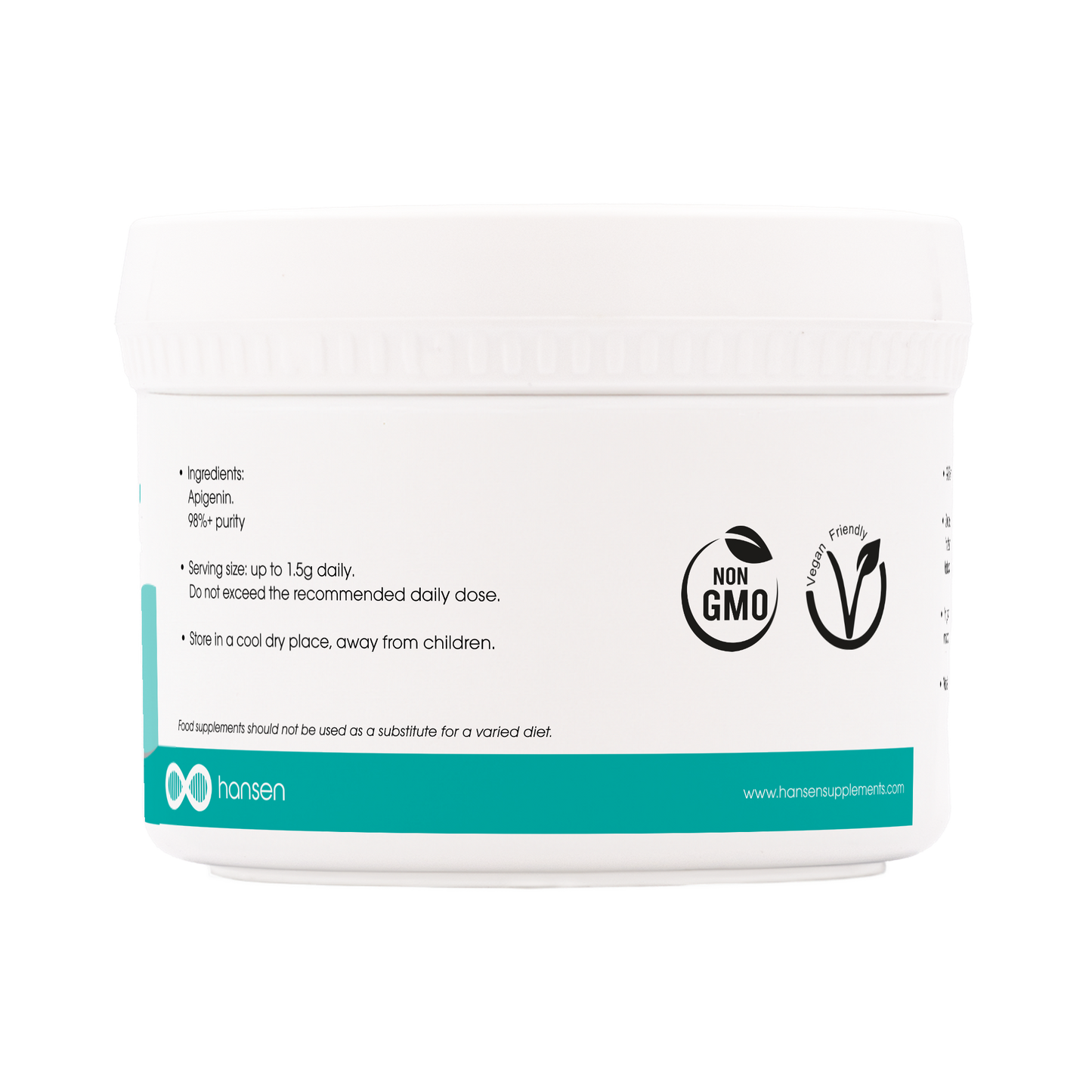
Collapsible content
Product overview
Apigenin (4′,5,7-trihydroxyflavone) is a natural compound in the flavone class, found in small amounts in foods such as parsley and chamomile. Research has found Apigenin to provide anti-inflammatory effects, as well as a range of potent anti-tumor and anti-cancer properties. In addition, via the inhibition of CD38, Apigenin is said to improve NAD+ levels, triggering anti-aging processes.
These statements have not been evaluated by the Food and Drug Administration or MHRA. This product is not intended to diagnose, treat, cure, or prevent any disease. Food supplements should not be used as a substitute for a varied diet.
Dosing and storage
Quality
Shipping
Learn more about Apigenin

What is Apigenin?

